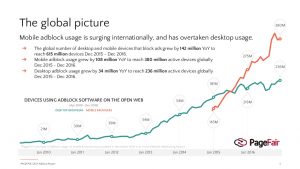
Search engine optimization continues to be crucial in helping customers find you online. The main purpose of an SEO strategy is to improve your online visibility and make it a proven method for boosting revenue while building a solid foundation for all marketing efforts going forward. However, where do you start?
Here are 10 need-to-know facts about SEO.
1. Smart and effective SEO is a long-term solution and you should not expect immediate results.
When launching a digital marketing strategy, you have to determine how to measure your return on investment. Some efforts like pay per click advertising can start driving leads within a couple of days. However, SEO will take months or longer before you start noticing a difference in revenue, but your patience will pay off. Unlike PPC, SEO results are much longer lasting and cannot be turned off and on due to spend.
2. Websites with responsive design are favored by search engines.
These days, it is imperative that you have a mobile-friendly website. Search engines value customer experience, and it is proven that customers have a better experience when using a responsive site, no matter what device they’re using. Long gone are the days when your customers just went to their desktop computers to search for what they needed. The number of searches on mobile devices surpassed desktop in 2015, and search engines are not likely to rank you very high if consumers have to zoom in on your tiny print.
3. Pictures can be optimized to serve your relevancy and rankings.
It’s easy for us to see what’s in a picture, but how do search engines actually know what the picture contains? You need to help search engines identify your visual content. Save your image files using the primary keywords of your landing pages, include captions, and insert alt text to help search engine bots understand what consumers actually see in your pictures.
4. SEO and PPC advertising complement each other.
PPC advertising, otherwise known as search engine marketing, is a great way to quickly become visible on the first page of search engine results. If you can show up on the results page in both paid search and the organic listings, you’re taking up more real estate and boosting your credibility. Search engines value quality, keyword-rich content on both SEO and PPC so you could be rewarded with cheaper clicks over time as your landing pages have been optimized for relevancy.
5. Site load time affects your organic rankings.
According to Google, a reasonable load time for websites is about 4 seconds. Consumers want instant gratification and don’t like to waste time watching a blank or incomplete screen while your site loads. If search engines notice site visitors are leaving your site after waiting too long, you’re going to get outranked by your competitors running sites that load quickly. It also decreases the chances of your site being fully indexed because search engine bots have a limited amount of time and budget to crawl your site.
6. Search engines readily show your online review ratings.
Word of mouth online has a powerful impact on sales. Reviews are highly trusted by consumers, and your reputation influences their purchasing decisions over your competition. Encouraging your customers to leave positive reviews so that everyone else can see what you’re doing right is only the first step. By adding Schema.org markup to those reviews, search engines are then able to actually show those ratings in your results, greatly increasing the chance a consumer clicks to your 4-star (or better) business.
7. Site navigation is highly-valued for a positive user experience.
On top of having a mobile-friendly website full of relevant content, it’s also important to ensure it’s easy to navigate. You want your customers to be able to find what they need and not leave your website frustrated. Make sure you offer various options for consumers to get from page to page, like a top navigation bar, and include anchor text with hyperlinks within your content.
Search engine bots crawl your site to determine how your internal links direct to other pages within your site. The better organized your site is with internal links pointing towards pages you want customers to see the most, the more search engines will recognize their importance. Perform regular checks throughout your site to make sure there aren’t any page errors. Having pages that don’t work leads to a negative user experience and lessens your site credibility with the search engines.
8. Updated and consistent information boosts offline conversions.
Half of online searches for smaller businesses occur with the intent to visit in person. Need people to know when you’re open? You better have your business hours updated across rating sites and local listings. Alternatively, you don’t want potential customers getting your after-hours message because they found outdated information. Search engines look at this information as well. You need to have your business name, address, and phone number updated and consistent across the web or search engines won’t know what information to trust.
9. You can put yourself on the map with your Google My Business page.
Do you notice the map section on the Google results page with business locations highlighted? If your business has a physical location, or even multiple stores for customers to visit, you need to make sure you’re visible on Google Maps. This is done automatically just by activating your Google My Business page with your address. You can also give yourself an added boost by verifying your page. By going through this process, Google knows the information on this page is accurate and is more likely to rank your map listing above your competitors.
10. What gets you ahead today isn’t guaranteed to work tomorrow.
SEO practices are constantly evolving as search engines update their algorithms. Online search behavior is progressing with technology, and major search engines like Google strive to continue providing a positive user experience. They’re also trying to catch sites taking shortcuts to boost their rankings. Black hat SEO practices take advantage of current algorithms for short term gains but can result in getting penalized by a drop in ranking when caught. Stay up to date on best practices and your organic presence will experience positive, long-term growth.
There’s a lot to keep track of when it comes to SEO. Your SEO checklist is an ongoing strategy that requires patience while building a solid foundation for your paid media efforts. Whether you’re doing it all yourself or entrusting an expert to manage your SEO while you focus on running your business, taking these factors into consideration when optimizing your organic presence will help yield year-over-year revenue growth.
Digital & Social Articles on Business 2 Community(27)








